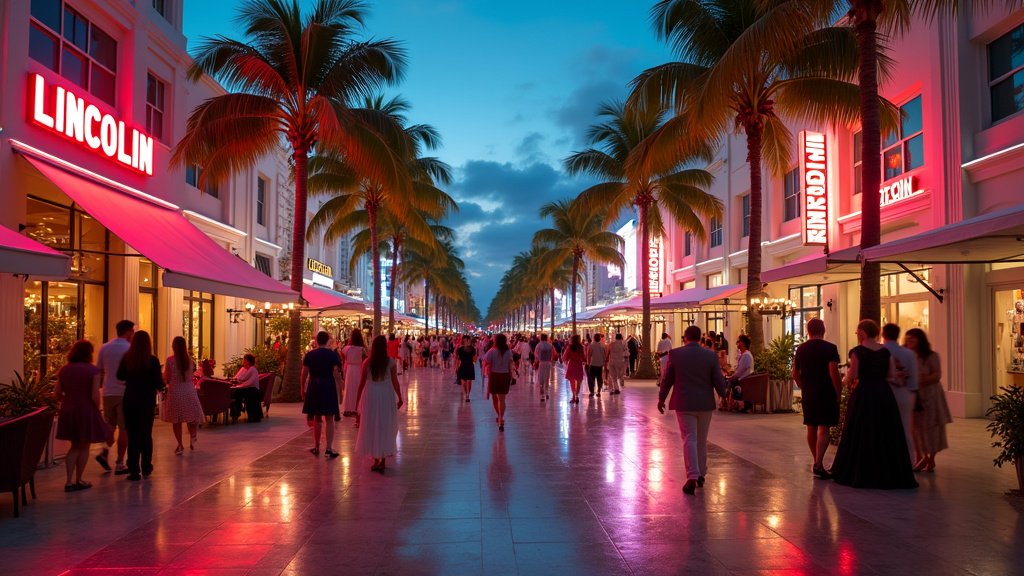Miami Beach has officially entered the fray in a growing conflict between Florida municipalities and the state over the removal of rainbow crosswalks. In a decisive move, Miami Beach city leaders voted unanimously to defend the vibrant rainbow crosswalk on Ocean Drive and 12th Street, directly defying a mandate from the Florida Department of Transportation (FDOT) that requires its removal. This action signals a significant pushback against a state directive viewed by many as an attack on LGBTQ+ visibility and local governance. The city has formally requested an administrative hearing with the FDOT to contest the order, signaling a commitment to a legal battle over the iconic street art.
The core of the dispute lies in an FDOT order, supported by Governor Ron DeSantis, that mandates the removal of “non-standard surface markings” and “art associated with social, political, or ideological messages” from public roadways. The state’s justification centers on safety concerns, with officials claiming these colorful crosswalks can be distracting and pose a hazard to drivers and pedestrians. This directive, spurred by federal guidance emphasizing that “roads are for safety, not political messages or artwork,” has led to similar confrontations in at least nine other Florida cities, including Key West, Delray Beach, and Fort Lauderdale.
Miami Beach Commissioner Alex Fernandez has been a vocal proponent of defending the crosswalk, arguing that there is no evidence to suggest it has led to an increase in traffic accidents. He highlighted that the specific intersection where the rainbow crosswalk is located has historically experienced fewer accidents compared to adjacent streets. “If safety is the measure, this crosswalk more than passes the test,” Fernandez stated, pointing to accident data for nearby streets.
In addition to the fight to keep the crosswalk, Miami Beach commissioners also approved renaming the street “Pride Street.” This symbolic action aims to further solidify the city’s commitment to inclusivity and the LGBTQ+ community, serving as a permanent recognition regardless of the crosswalk’s painted status. Commissioner Fernandez suggested that even if the crosswalk is eventually removed, the renaming of the street will ensure the message of inclusivity remains embedded in the city’s identity.
The FDOT’s mandate carries significant financial implications, threatening to withhold millions in state and federal transportation funding from cities that refuse to comply. This threat has placed considerable pressure on municipalities, forcing them to choose between adhering to the state’s directive or risking financial penalties. Despite these warnings, many cities, including Miami Beach, are opting to challenge the mandate, viewing it as a matter of local control and civil rights.
The controversy has ignited passionate responses from residents and activists. Many see the state’s order as a politically motivated attempt to suppress LGBTQ+ visibility and silence dissenting voices. Protesters have rallied in support of the rainbow crosswalks, emphasizing their importance as symbols of inclusion, acceptance, and community pride. Equality Florida, a prominent LGBTQ+ rights group, has called the state’s actions “egregious” and an “attack against LGBTQ visibility.”
Arguments against the FDOT’s stance often highlight studies suggesting that decorative crosswalks, including those with rainbow designs, can actually enhance safety by slowing down traffic and increasing driver and pedestrian awareness. Research from Bloomberg Philanthropies, for instance, has indicated a reduction in crashes at intersections with such art installations.
As Miami Beach moves forward with its request for an administrative hearing, the situation remains a flashpoint in a broader cultural and political debate across Florida. The outcome of this legal challenge will not only determine the fate of Miami Beach’s rainbow crosswalk but could also set a precedent for other cities navigating similar state mandates. The news from Miami highlights a current affairs issue with significant implications for local governance, LGBTQ+ rights, and public art in the state of Florida.





